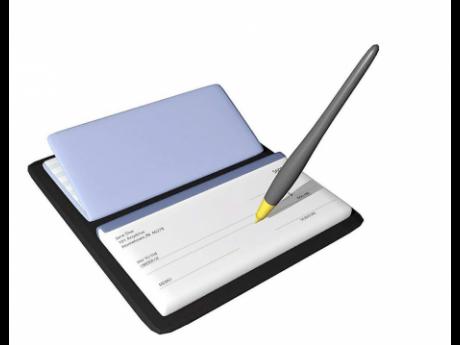Oran Hall | Getting your credit score back to normal
QUESTION: I’m asking if it’s possible for someone to pay their debt and pay to have their credit score back to normal. I have a very small loan about $36,000. I was in a little difficulty, so I borrowed it to help, but unfortunately, I did not get to pay on time. Now, it’s affecting my credit score, and I would love to clear it off now.
– Noble
FINANCIAL ADVISER: As you have experienced yourself, not paying a debt can have negative consequences – whatever the reason for your not paying or being able to service your debt.
The standard is for a debt transaction to remain on the records of the credit bureau for a maximum period of seven years after the final payment has been made, so it can affect your credit score for up to seven years. As long as the particular debt remains on your record, it is factored into your credit score, so it does affect it, but to the extent that you incur new debts and service them satisfactorily, your score and credit-worthiness will improve.
There is an outside chance that a liquidated debt can be removed from the records before the end of seven years, upon a request being made to the credit bureau by the lender, and this would depend on the circumstances surrounding the matter. You would have to take the initiative and ask the lender to do a letter stating that the debt has been settled, and it would be up to it to make the request of the credit bureau.
As far as I know, once you clear your debt, you do not have to pay to begin to repair your credit score. Having it restored to normal, as you put it, generally does not happen immediately given what I said earlier about a debt remaining on your credit report for up to seven years after it has been liquidated.
If you are wondering if finally paying makes sense, let me say that it does as it opens up an opportunity to get this behind you and be eventually able to get credit more readily. Your creditworthiness has only been stained, not permanently damaged. On the contrary, not paying at all will hurt your creditworthiness because a debt that is not paid remains on your record indefinitely, thereby not leaving room for restoring your credit worthiness.
Let me explain how the credit bureau works.
A credit bureau is an independent agency that compiles and stores data on the borrowing and payment history of consumers to assess their creditworthiness, which is expressed as a numeric or alphabetic credit score, the higher the better, used primarily by potential lenders with the accompanying credit report in deciding to extend credit, and on what terms.
The Credit Reporting Act 2010 provides for a credit bureau to receive the following credit information on consumers from prescribed credit-information providers: the amount and nature of loans or advances or other credit facilities; the nature of security taken in respect of credit facilities, including lease financing and hire-purchase arrangements; information as to financial means, creditworthiness, or history of financial transactions, including antecedents, and adverse court judgments, and the nature of any guarantee or other non-fund-based facility, and analysis of the above, including any conclusions as to creditworthiness.
It includes the following as credit-information providers: commercial banks, near banks, building societies, securities dealers, the Development Bank of Jamaica, insurance companies, the National Housing Trust, the sellers of goods under hire-purchase arrangements, credit bureaux, the publishers of information on suits and judgments for debt claims, and entities exempt from the Money Lending Act.
The legislation allows for disclosure of credit information to another entity inside or outside of Jamaica and for disclosure by any entity outside of Jamaica of credit information relating to any transaction that takes place, in whole or in part, in Jamaica. Credit information providers are required to provide only information that is reliable, cannot share information that is more than seven years old, are prohibited from receiving information from unapproved sources, and from disclosing information they know to be misleading or false.
The credit bureau prepares a credit report on an individual based on the information it receives from the credit information providers. Remember, even a debt that has been liquidated normally remains on an individuals’ record – for seven years after the closure date – and is factored into the credit score during that time.
If you have not yet done so, I suggest you pay off your debt and take the necessary steps to have it removed from your record. If you do not succeed, it does not mean you will not be able to borrow at all, though some lenders may not be enthusiastic to lend to you. I wish you well.
_______
Oran A. Hall, author of Understanding Investments and principal author of The Handbook of Personal Financial Planning, offers personal financial planning advice and counsel.
_______

